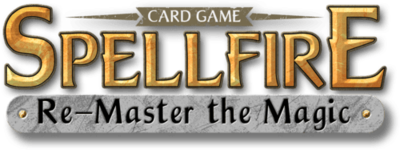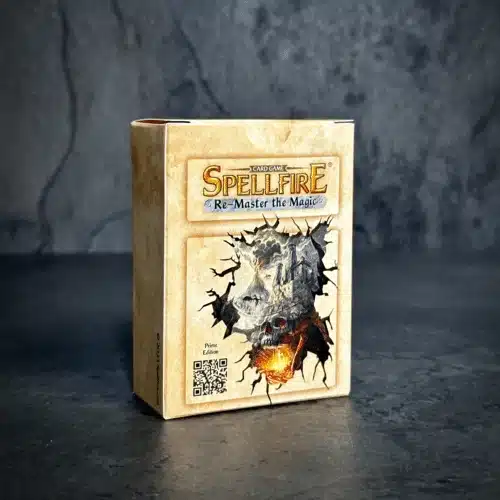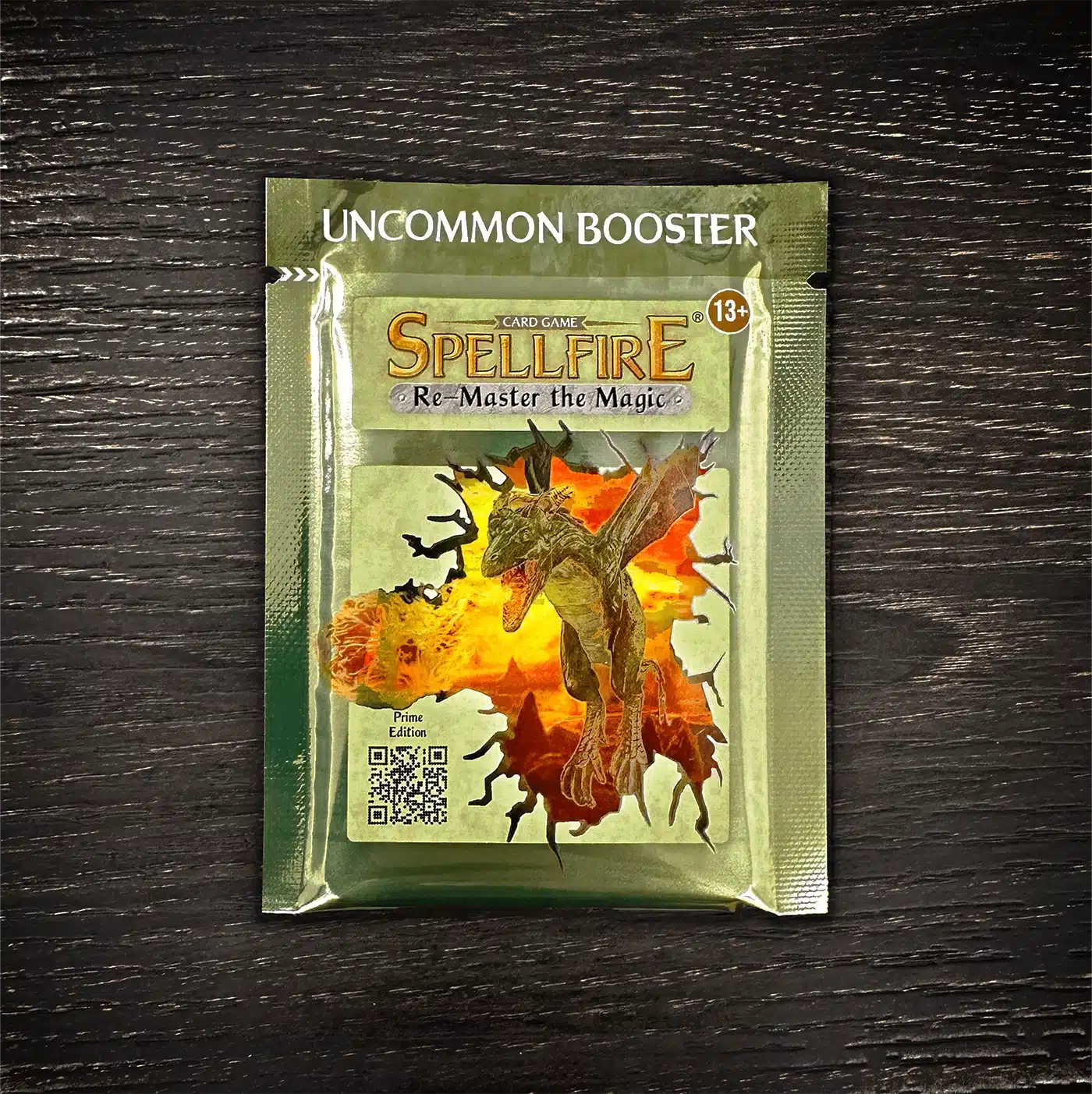The Decks
The mastership of deck buildingTheme decks as a strategy
Choosing the best theme for your deck
A Spellfire deck can be constructed in a number of ways. Below, there are listed some of the most popular theme decks. Consider these tips and tricks to build a deck to match a specific theme.
World Themes for the deck building
Decks based on a Spellfire world, such as the Frozen Fire or Blood Birth, tend to be the most popular. They make it way easier to choose the cards. The optional World Bonus rule helps choose champions, realms, holdings, and artifacts. Remember that all the cards in a deck should be from the same world. Then, you'll never have trouble attaching a holding to a realm or putting an artifact into play with the appropriate champion.
Champion Themes for the deck buildings
Champion selection for a theme deck is up to your liking. Any champion type can be used as a theme deck (heroes, wizards, clerics, monsters, psionicists, regents, or thieves). Don't forget to consider other cards too. The number of Powers and Blood Birth cards you own may limit you in instances when you are using psionicist or regent themes. The shortage of unarmed combat cards is also a hindrance to hero decks.
Champions decks are often combined with other themes or a sub-theme. It is common for the best champion theme decks to center around a specific style of play. For example, a hero attack deck or a wizard spell deck. The special powers of these champions closely reflect the specific style of play. For more information about this topic, look below. You will find information on champion types and how to build themed decks based on them.
Hero Themes
Champions decks are often combined with other themes or a sub-theme. It is common for the best champion theme decks to center around a specific style of play. For example, a hero attack deck or a wizard spell deck. The special powers of these champions closely reflect the specific style of play. For more information about this topic, look below. You will find information on champion types and how to build themed decks based on them.
Usually, heroes focus on attacking, which means that allies and magical items are significant additions. Heroes can benefit from allies with high-level bonuses and magical items with potent special powers. In general, hero decks are more susceptible to spells, so many choose a hero who is immune to offensive spells.
Monster Themes
After the heroes, monsters are the most prevalent champions. They have special powers and the ability to cast spells, fly, swim, and earthwalk. Most undead champions are monsters, and these decks are pretty popular. There is also a predominance of monster champions among dragons, making monster decks seem richer with yet another subtheme.
These decks also lean more toward attacks. Yet, many monsters are capable of casting spells, which is beneficial. These champions work well with combat spells (phase 4), particularly ones with high-level bonuses or those with special powers that would provide an edge during battle. Since many monsters can fly, earthwalk, or swim, reaching an opponent's rear realms is very easy. It is also beneficial to use items that grant immunities or provide a large level bonus to a monster's attacking abilities.
Wizard Themes
Wizard theme decks are trendy, primarily due to their potency of spells. Wizards can use allies, magical items, artifacts, and spells. Some say that these are the most versatile theme decks. Sometimes, players don't even have to attack. If a player wants, it is possible to build a wizard deck that uses powerful spells, items, and artifacts. A wall or other defensive spell could be helpful in this case.
Wizard theme decks must have spells, but not each and every one. It is advised to only use spells in Hero theme decks, which have already been described.
Cleric Themes
Now, with avatars, clerics can be excellent theme deck builders. Most of the spells available to champions of this type are defensive, but a powerful offensive avatar can make it possible for offense too. It is the best theme if you want to bring avatars into the game. Clerics can use spells to return champions from the discard pile, and that is why this theme deck shouldn't be overlooked. Yet, consider that clerics alone aren't enough to build a powerful deck, and it may be better as a sub-theme.
Other Champion Themes
There are fewer psionicist, thief, and regent champions, so limiting decks like these can be expected. It is challenging to determine the type of deck that you may face when playing against a deck of just psionicist champions. Even though several cards hinder psionicists, that doesn't mean everyone has them.
On the other hand, the Regents have fewer instant defeat cards and can use blood ability cards. Due to the relative rarity of blood ability cards and Blood Birth artifacts, regents require a solid sub-theme for backing up their decks. In addition, many regents can cast spells, giving players considering a regent theme yet another avenue for expansion.
Special Power Themes for the deck building
Champions have special powers, and deck themes could come out of these powers. Some Spellfire cards support flyers, swimmers, earthwalkers, and undead decks. Most of these decks are a mix of worlds and champion types. They are supported by the special abilities of rule cards, events, realms, holdings, and artifacts. Alternatively, you might design a deck around immunity cards or instant defeat cards. Considering the number of cards in the Spellfire game, the possibilities are endless.
Undead Theme
The undead decks are pretty popular since several cards contribute to their strength. This theme is not solely based on champions: some cards confer special powers to the undead, such as increasing their level or conferring immunity.
The decks with the Undead theme tend to be combat or multipurpose, and a deck with an offensive sub-theme also needs undead allies. In many cases, cards enhancing undead champions also increase undead allies' levels. It can become extremely challenging to defeat an undead champion and their allies in a one-on-one battle due to the high levels of attacking the undead.
Flyer, Swimmer, & Earthwalker Themes
These decks tend to focus heavily on attacking. Special powers allow players to attack realms regardless of their position, so there is no need to limit the uses of these special powers to one deck; they can be combined into one. Combining the powers is the best option as it does not limit a player too harshly or expose him to a particular instant defeat.
A crucial aspect of this theme is the type of allies. Allies must be able to reach used, as they must be realms behind the front line of an opponent's formation. Some flying allies have excellent special abilities and even more magical items to grant further immunity.
Remember that these decks have the disadvantage of having a lot of instant defeat cards. The most common are in the form of flying champions and allies. If you plan to counter it, it is smart to insert magical items, spells, and artifacts.
Miscellaneous Special Power Themes
Themes such as dwarves, giants, elves, dragons, etc., are popular too. Yet, these themes are not without disadvantages. Their main lack is related to the lower amount of supporting cards. Combining those themes with another subtheme or having dwarves, elves, and dragons stand alone is better. There are several champions from each category, so it might be possible.
If spellcasters are present, magical items and events can best support each of these themes. Giants and dragons are both durable themes, but many instant defeat cards are designed to destroy champions with these designations. Dwarves, for example, have relatively few supporting cards but a fair number of champions. Nevertheless, dwarf champions are nice to have because they often possess the special ability to earthwalk, making them a great choice for attack champions.
Spell Theme
A popular theme in Spellfire is the use of spells. It could be the main theme, a sub-theme, or an element of the deck of a wizard, cleric, or other types. Both cleric and wizard spells are available on this theme, so there are more than enough cards. Spells can be incredibly powerful, but their power is also vulnerable to the power of another card. To counter this theme, you can build an anti-spell deck quite easily.
The main problem with this theme is quite obvious. When a player bulks up on phase 3 spells, he may be left defenseless when his opponent attacks in phase 4. The possibility of spells being dispelled or returned against you is also present, and usually, it could mean the end of the game for you. Only several champions in the Spellfire game are immune to both types of offensive spells. For these reasons, a spell deck should contain several items, artifacts, or allies that can be used in an emergency.
Combat vs Noncombat Themes
Each Spellfire deck theme falls into one of three categories: combat, noncombat, or both. The best deck is the one that focuses only on one of the two themes. Combining the two themes will enable you to accomplish more, but the choices are always up to you.
Combat Theme
If you want to keep your opponent from winning, it is a good idea to raze at least one or two of his realms. Most Spellfire decks representing combat are sub-themes of other deck types. However, it is possible to build a deck solely for the battle, and it can be effective in most cases. Taking down your opponent's champions in combat will eventually wear them down. Later, penetrating their defense won't be too hard.
When playing a combat-themed deck, playing the numbers is a simple strategy. Using high-level champions, spells, and allies with high bonuses will help you win. The problem with this strategy is that it leaves you vulnerable in case your opponent has special powers. Many battles aren't long enough to add up combat totals due to instant defeat, magical items and allies, and cards that instantly end a round of combat.
Players often prefer to play the powers, not the numbers. There are so many special powers, and most of them are very alluring. In this case, more cards are needed to support it - like magical items, artifacts, events, and rules cards. A deck should be constructed around the cards' special powers with the greatest chance of success.
Ideally, the smart choice would be to use cards with good numerical bonuses and powerful special powers. Pay less attention to the lower-level champions, and they could stop you from winning an important battle.
Noncombat Theme
The noncombat style of play should also be taken into consideration. Pay attention to the cards that may be played in phases other than 4. Some realms have special powers that prevent attacking champions, and some cards that immediately defeat opponents.
Getting six realms out quickly is crucial to a noncombat deck, and it needs to be done in six turns or less. The requirements for achieving this are:
• Having the maximum number (or near the maximum) of realms.
• Having cards that stop or pause combat.
• Having additional cards every turn.
• Having cards that negate harmful events and offensive spells.
Additionally, it is helpful if you can go first at the beginning of the game. Yet, usually, it just depends on your luck. The holdings may also be important in this kind of deck.
If a breach occurs in a deck with this theme, it must also be prepared to defend its realm. Walls are particularly useful here since they end a battle round. Even so, selective attackers will still be able to attack since this will not stop all of them. The best defenders are champions with powerful immune systems.
A theme deck has its own weaknesses. In this deck, if your opponent gets out of the realms sooner, it can be difficult to catch up since attacking is a no-no. Choosing the right cards to defend yourself is difficult too, and it's especially hard when you're playing with a group of other players that are more experienced than you.


